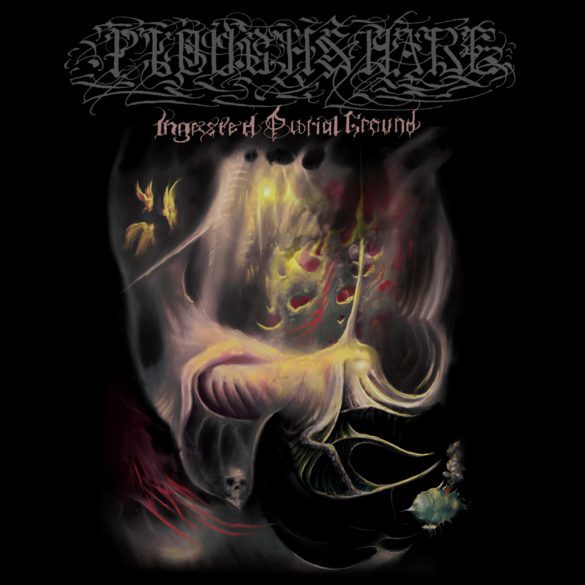
Let’s just say that the new track, “An Uneasy Dread Arose,” from Australian black/death outfit Ploughshare does not go where you might expect it. In fact, it’s a wonderland of harsh sounds that ventures from from industrial/electronic hardcore and noise rock to vengeful black metal, with—sure, why not—head-cratering death metal thrown in for good measure. It’s nearly six minutes of ear-savaging glory—more akin to a soundscape than an actual “song”—that’s intensely satisfying.

“An Uneasy Dread Arose” (which features guest vocals from Whitehorse’s Peter Hyde) is one of five new pieces on Ingested Burial Ground—the band’s second full-length—which also includes additional remixes of each track. The album is set for a December 8 release via Brilliant Emperor on cassette and digitally. You can preorder it here.
Here’s what the band had to say about the experimental nature of its new album:
“Ingested Burial Ground is an exploration of some of the influences and ideas behind the band that have previously been addressed only in the margins, through using different configurations and instrumentation. All our records, to now, have entailed experimentation in some form. We recorded this album bit by bit, in a few different locations. Everything about how these songs came to be involved a new process or a new way of working, so it took time.
In terms of our parts of the recording, all recording was done by us and mastered by a friend, an approach we have used for all our records up until now. Peter Hyde’s vocals were recorded in Melbourne by Dave from Sow Discord/Whitehorse.
Using different instruments meant learning how to play them in the way we needed, which also applied to recording. We split the band’s efforts differently so the recording itself was done by different members at various stages throughout the process. There was no single recording session involved with these songs.
We write lots of music for guitar, but these songs were not for guitar. Basically, there were other ways of working and writing that interested us at the time, which meant using guitars for different purposes, if at all. Decisions over instrumentation were driven by the needs of the songs themselves.”






